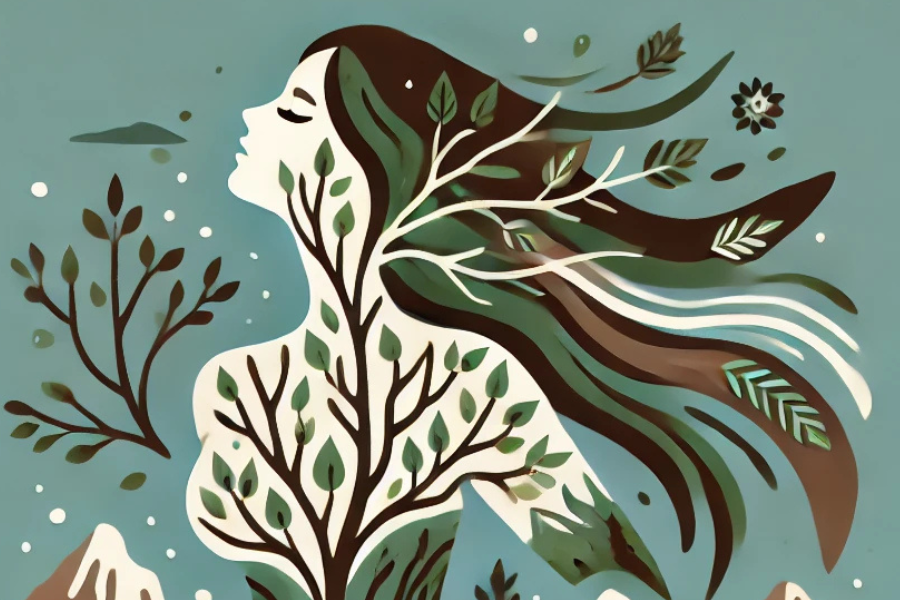This post is also available in: Français (French) العربية (Arabic)
The cover image was created by artificial intelligence.
This movement, which probably dates back to the times of the witches in the 15th century, drew a correlation between the fight to save the planet and women’s rights when it took shape in the 1970s. It took note of the similarities between different systems of oppression: the oppression of women by men, and the over-exploitation of nature by a capitalist, extractive system dominated by the patriarchy. Pacifism and the fight against nuclear power are fundamental to this feminism. In a utopian world, it would be a possible alternative to reenchant the world. The Italian Laura Cima, a pioneer of ecofeminism in her country, even considers it a “necessary revolution.”
But there is an almost ideological divide between feminists on either side of the Mediterranean as to the importance of this movement: while the cause of ecology is making headway in the Arab world, it has not yet fully entered the public sphere. Climate sceptics are numerous, the number of green parties can be counted on one hand, and there are practically no demonstrations for a healthy, sustainable environment. In the Middle East, where wars remain cyclical and recurrent, and in the Maghreb, where individual freedoms are lacking, ecology often seems like a Western luxury, a preoccupation of the “rich.”
Yet everywhere in the southern Mediterranean, climate change is causing women to suffer and starve, leaving them vulnerable to male violence and forced displacement.
But there is an almost ideological divide between feminists on either side of the Mediterranean as to the importance of this movement.
In Tunisia, on the Kerkennah Islands, women are turning to clam digging—a very difficult job, as the sea has nibbled away at the land and made it impossible to keep up the subsistence farming they traditionally practiced. In remote areas of Morocco, desertification and endemic poverty force parents to marry off their underage daughters. In Algiers, during the summer of 2023, many more women died than men during a period of intense heat (over 50° Celsius). And the city of Alexandria in Egypt could be completely submerged. Lebanon is totally vulnerable and dependent on Western funds due, among other things, to the destruction of the sea and mountains.
The effects of climate disruption are increasingly being felt, which has led to interesting initiatives by women living on the southern shore of the Mediterranean: these include Ommi Faiza’s shared vegetable garden in Tunisia and the work of Sara Ragab in Egypt, an engineer who creates ecological material from plastic waste.
“At a time in history when wealth, and the power that comes with it, is concentrated in the hands of a very small number of people, all of them male, we must remember the extraordinary generative power of women,” Laura Cima asserts in an interview.
How could we but agree with her?































